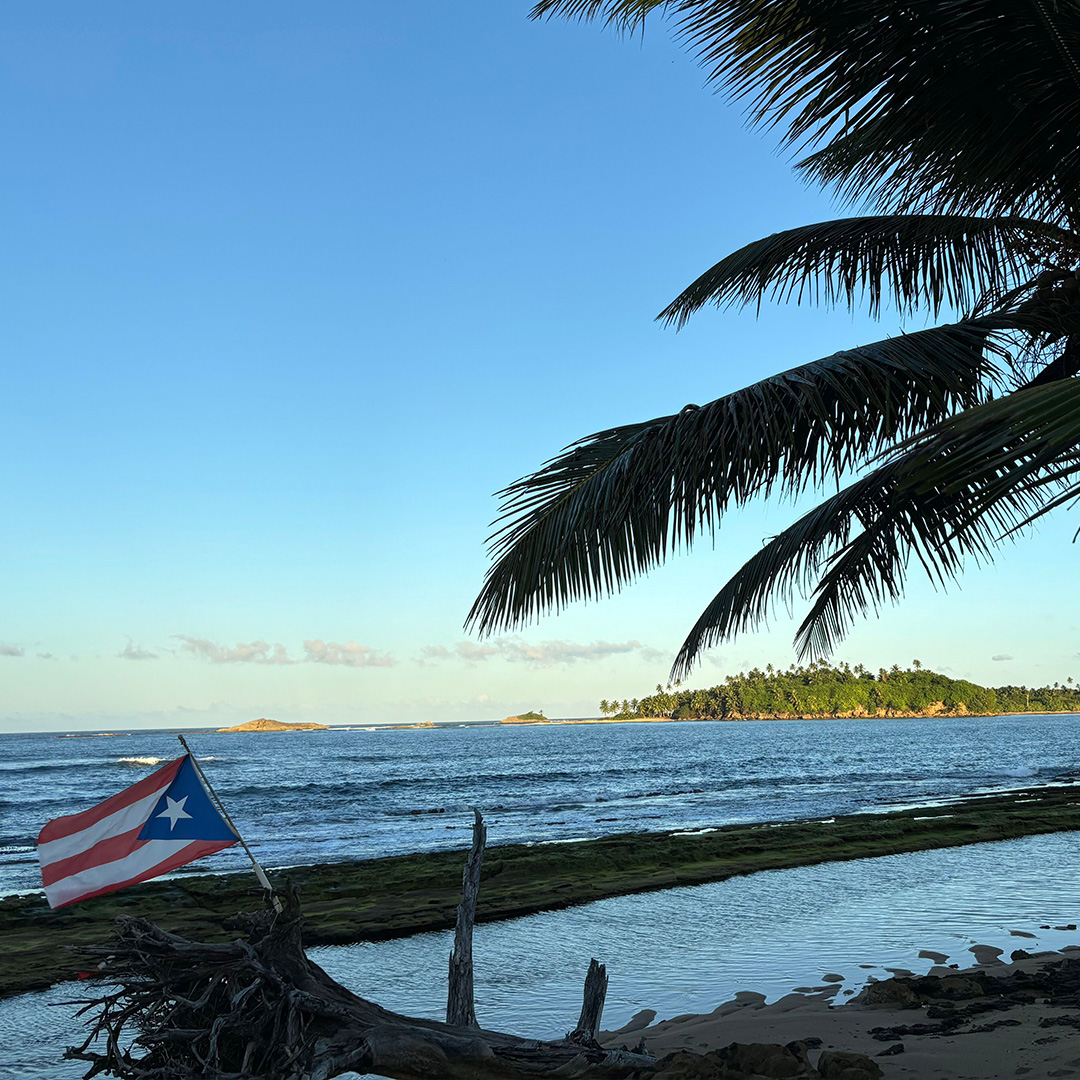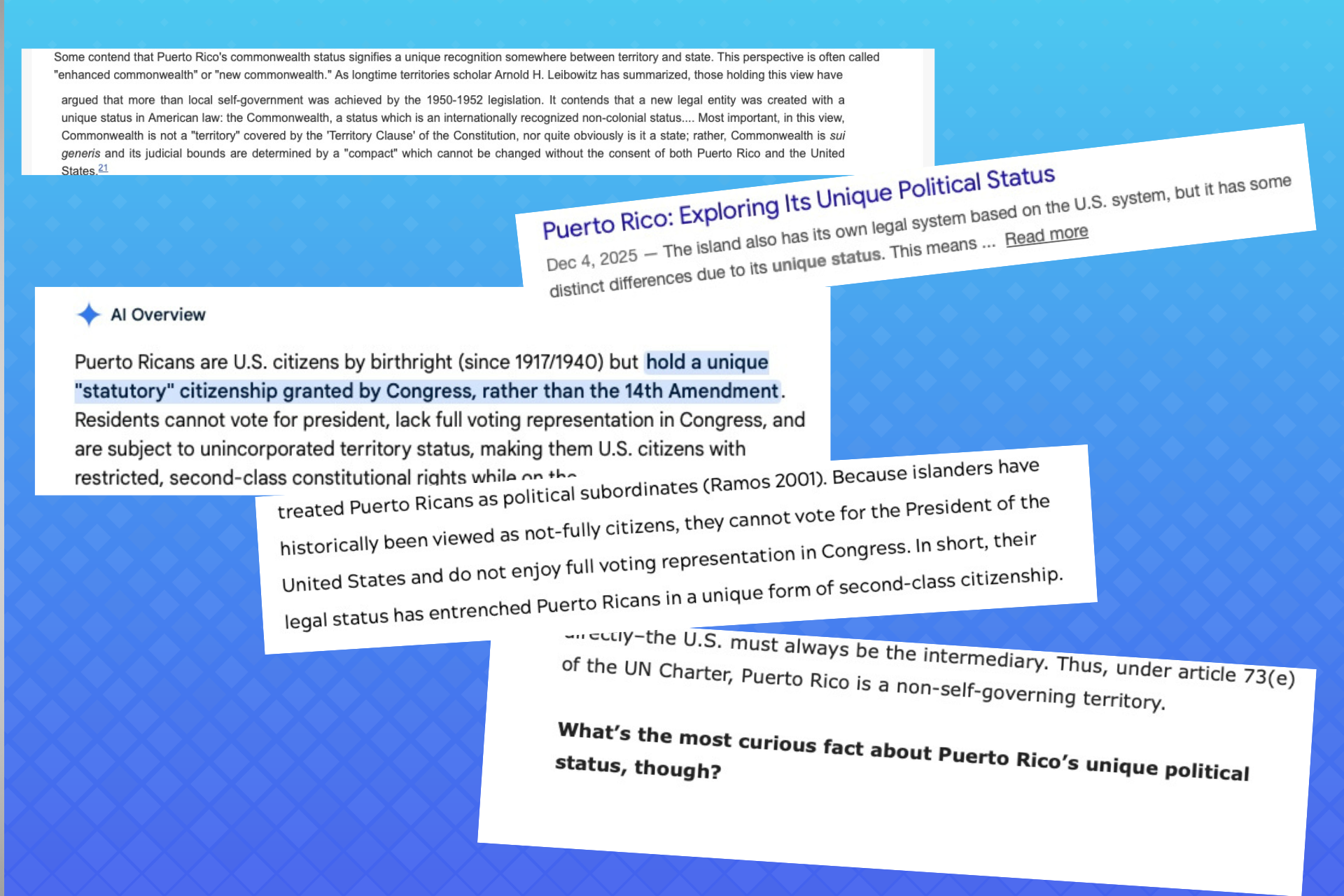In the recent election, the people of Puerto Rico voted overwhelmingly for statehood. Congress must take action to admit Puerto Rico as the 51st state. Under the U.S. Constitution, this can happen with a simple majority in Congress.
Since Puerto Rico has a limited voice in the federal government, the U.S. citizens in Puerto Rico need the help of our fellow citizens living in the states to make sure that Congress hears us.
Please join us. We can’t go back.
It’s time to move forward!
Video and Podcast
The Puerto Rico Statehood Council created PR51st to advance the goal of achieving equality for the U.S. citizens of Puerto Rico through statehood. We seek to amplify the message of statehood for Puerto Rico in ways that are engaging, interactive, and easy to share.
Why Puerto Rico’s Status Matters
to All Americans
Why Puerto Rico Veterans
Fight for Statehood
Working to build a national movement in support of equal rights for the US citizens of Puerto Rico
A Nationwide Movement
The Puerto Rico statehood movement is supported by men and women in every state and territory, Democrats and Republicans and Independents.
After more than a century as a possession of the United States, Puerto Rico wants and deserves full equality with U.S. citizens living in the states.
Puerto Rico is ready for the full rights and responsibilities of statehood.

Puerto Rico, the 51st State
Puerto Rico has been under the U.S. flag since 1898, and Puerto Ricans were granted U.S. citizenship in 1917. But the Island is still an unincorporated territory. What does this mean?
Puerto Rico’s ultimate political status is still uncertain. It could become a state or an independent nation, or it can continue to be a territory indefinitely.
The Federal government governs Puerto Rico, even though it has allowed self-government on local matters. The Supreme Court has said that Puerto Rico does not have the “power, dignity and authority” of a state.
It does not have votes in Congress or in the election of the President. One House of Representatives member with a limited vote represents all three million plus U.S. citizens of Puerto Rico.
It is treated differently than the states and is discriminated against in federal funding allocations.
Federal officials have said Puerto Rico should have the status its people want from among all legally possible options. Under the U.S. Constitution, there are only three options:
● Statehood
● Independence
● The current territorial status
The current status is untenable for Puerto Rico and for the United States, so the only real options are statehood or independence with or without free association.
Contact your legislators and tell them it is time to decide Puerto Rico’s future.
Featured Products
In 2024, 58% of Puerto Ricans voted for statehood. This marks the fourth time this century — along with 2012, 2017, and 2020 — that voters in Puerto Rico chose statehood above all other status options.
Some local politicians want a new arrangement with benefits of being a state, a nation, and a territory they call “Enhanced Commonwealth status.” Federal officials say it is impossible.
Congress has the power to take action for statehood now. Only statehood will bring full equality for Puerto Rico. But advocacy requires resources. You can help!
But advocacy efforts require resources. You can help!








